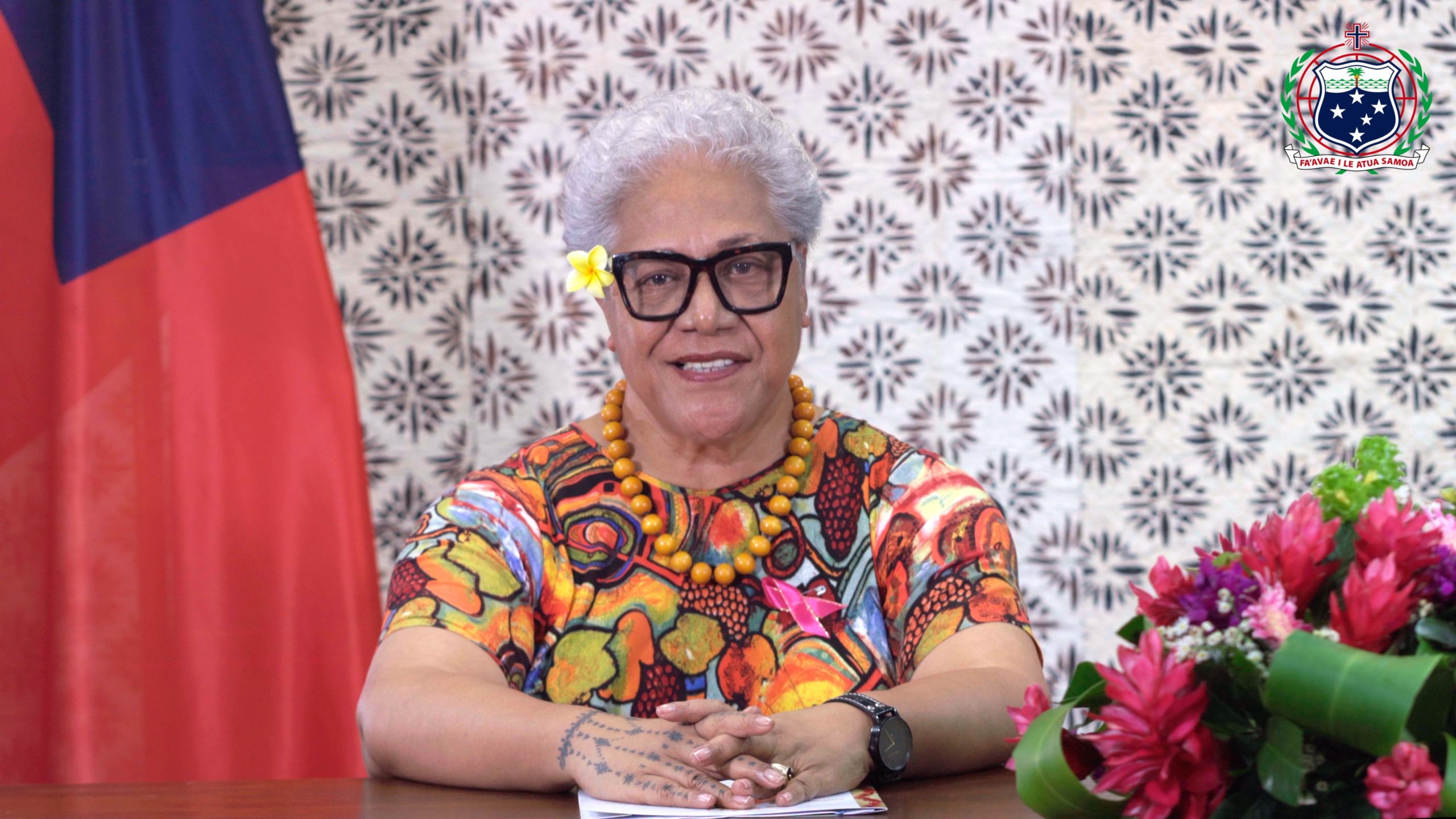| Over a 12 hours-time difference between Apia and Geneva, the report on
the state of human rights in Samoa came under the microscope of the fifty-four (54) member states of the
Human Rights Council Universal Periodic Review (UPR) Working Group.
The Samoa delegation was led by Hon. Fiame Naomi Mataafa, Prime Minister of Samoa, and the interactive
dialogue was led by the Chief Executive Officer (CEO) of the Ministry of Foreign Affairs and Trade, Peseta
Noumea Simi. She was supported by the Attorney General Su’a Hellene Wallwork, CEO of the Ministry of
Justice and Courts Administration Moliei Vaai, ACEO Research, Planning and Policy Division of the Ministry of
Women Community and Social Development Fitiao Susan Faoagali, and Members of the National Mechanism
for the Implementation, Reporting and Follow-up (NMIRF) Taskforce, from several government ministries.
The Office of the Ombudsman/ National Human Rights Institution, the United Nations, and representatives of
non-governmental and civil society organisations also joined the Samoa delegation at Lava Hotel around 9pm
November 2nd to hear from the Human Rights Council and their observations on the progress of human rights
in Samoa and to take note of their recommendations on human rights concerns that Samoa needs to consider
for implementation, until the next UPR reporting cycle.
This is the 39th Session of the Human Rights Council UPR Working Group, which is taking place from the 1st to
the 10th November. Samoa is one of the 14 countries reporting during this session.
Samoa presented its first report in May 2011, with its second review in May 2016. Since the first two reports,
Samoa has continued to invest in improving the implementation of its human rights obligations.
One significant mechanism to strengthen the implementation was the establishment of the National Mechanism
for the Implementation, Reporting and Follow-up (NMIRF) Taskforce (“Taskforce”) in 2016. The Taskforce
ensures consistent and wider stakeholder engagement, utilizing the sector wide approach and aligning the
different reporting processes as well as monitor the progress of implementation
Data collection for the reporting has also improved with the availability of the SADATA web application which
helps develop a national implementation plan by clustering recommendations, identifying implementation gaps
and regularly collecting data through the related consultations.
The Prime Minister of Samoa, in her opening remarks reiterated the fact that the fa’asamoa holds core values
that guide social interaction such as respect, dignity, love, protection, and service, which mutually reinforce
human rights.
Hon. Fiame also said that ‘while there is progress, not all are benefitting equally and many challenges remain.”
She added that the review, is a useful platform for Samoa to identify the gaps for dedicated attention and that
her government is committed to address the new and emerging issues from this UPR cycle in the country’s
development priorities for the next five years.
The members of the Human Right Council commended the progress Samoa has made to improve the rights of
persons of disabilities, the rights of women, children, fa’afafine and fa’atama, and the peoples indigenous,
cultural, political and economic rights. Samoa’s attention was drawn to strengthening efforts in the elimination
of gender- based violence, protection and safety of children, upholding media freedom and ratifying the three
remaining core human rights conventions that Samoa has yet to do.
In Samoa’s closing remarks to the successful review, the Prime Minister highlighted that “virtual presentations
allow for more people to be involved in the process and can strengthen ownership.” She also noted that there
are no simple solutions to some of the issues raised, and stressed that for Samoa, “a whole of society approach
with a whole of government response can make all the difference.”
-ends-
Note to Editors.
The UPR is a unique process that involves a periodic review of the human rights records of all 193 UN Member
States. Since its first meeting in April 2008, all 193 UN member States have been reviewed twice within the first
and second UPR cycles. During the third UPR cycle, States are again expected to spell out steps they have
taken to implement recommendations posed during their previous reviews and highlight recent human rights
developments in the country.
The three country representatives serving as rapporteurs (“troika”) for the review of Samoa are Brazil,
Uzbekistan and Denmark
Watch Samoa’s UPR Reporting Session.
For more information :
Ministry of Foreign Affairs and Trade – Francella Strickland | francella@mfat.gov.ws
United Nations | Resident Coordinator Office – Aterina Samasoni | aterina.samasoni@un.org

